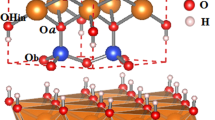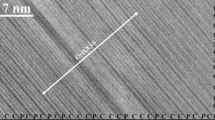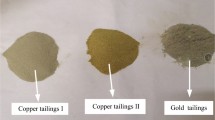Abstract
THE characteristic constituent of the natural substance, clay, has been the subject of numerous investigations both by chemists and by pedologists. It is generally believed to be colloidal, and the residual product of the hydrolytic decomposition of mineral silicates. Whilst attempts have been made to study this complex by methods of acid extraction, the most promising line of advance has been the study of the finest fraction obtained in mechanical analysis—the so-called colloidal clay. Although this fraction, as isolated by some workers, may contain small proportions of unweathered material, we shall probably not err greatly in equating it with the weathering complex, particularly if a critical settling velocity of less than 10-4 cm./sec. has been used in its separation by means of sedimentation.
This is a preview of subscription content, access via your institution
Access options
Subscribe to this journal
Receive 51 print issues and online access
$199.00 per year
only $3.90 per issue
Buy this article
- Purchase on Springer Link
- Instant access to full article PDF
Prices may be subject to local taxes which are calculated during checkout
Similar content being viewed by others
Author information
Authors and Affiliations
Rights and permissions
About this article
Cite this article
ROBINSON, G. The Nature of Clay, and its Significance in the Weathering Cycle. Nature 121, 903–904 (1928). https://doi.org/10.1038/121903a0
Issue Date:
DOI: https://doi.org/10.1038/121903a0
This article is cited by
-
Investigations on the rôle of organic matter in plant nutrition
Proceedings / Indian Academy of Sciences (1934)
-
Wissenschaftliche und technische Sammelreferate
Kolloid-Zeitschrift (1932)
Comments
By submitting a comment you agree to abide by our Terms and Community Guidelines. If you find something abusive or that does not comply with our terms or guidelines please flag it as inappropriate.



